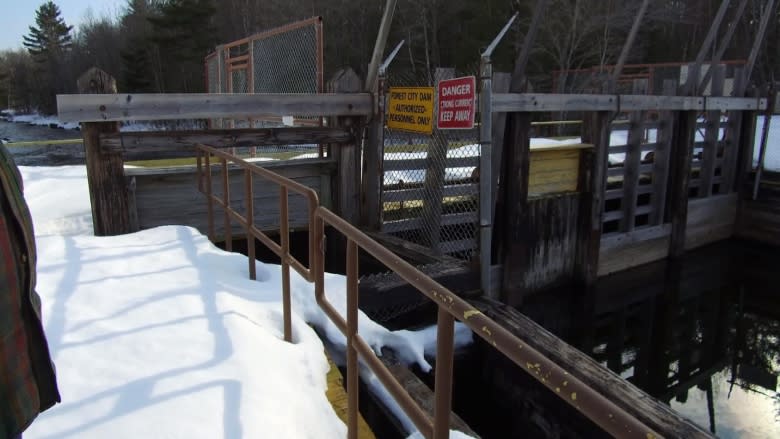Possible opening of border dam 'significant concern': MP Harvey says
The potential opening of a St. Croix River dam on the New Brunswick-Maine border demands Canada's attention, but it's too early to take a stand, says the MP for Tobique-Mactaquac.
"Over the last number of days I've had conversations with a large number of cottage owners," said T.J. Harvey. "It is a significant concern on both sides of the border."
- Passamaquoddy Tribe opposes plan to open dam on St. Croix River
The Liberal MP said Canada would "absolutely" participate in public hearings on the matter if they are called by the the U.S. Federal Energy Regulatory Commission.
He would not, however, say the government will oppose the application to open the dam.
"At this point, with the limited information that I have, and the limited scope of the application at this point, I think it would be very preliminary to make an assessment."
The proposal to permanently open the dam gates has upset hundreds of shorefront property owners on both sides of the border.
Cottage owners on East Grand Lake and North Lake say property levels would drop, along with water levels, because their homes would no longer have water frontage.
There are also concerns that navigation and fish habitat would be threatened.
The dam has been in place in one form or another since 1840. It holds back up to six feet of water on East Grand Lake, North Lake, and a connecting stretch known as the Thoroughfare.
The operator of the dam, Woodland Pulp of Baileyville, Maine, has applied to the Federal Energy Regulatory Commission in the U.S. to surrender its licence for the dam, remove two of its three gates, and allow water in the lakes above to drain to "natural" levels.
Woodland Pulp, which is owned by a Hong Kong-based holding company, claims a recent commission order would force the company to pay for "multiple" studies to comply with the terms of its licence to operate the dam.
That and other maintenance requirements make operating the dam uneconomic, said spokesman Scott Beal.
In Augusta, the state government is already deeply involved in the issue.
On Jan. 17, three days before the inauguration of Donald Trump, Governor Paul LePage had already penned a letter to both the new president and the new vice-president, Mike Pence.
In the letter, LePage, a Trump supporter, urged the two men to exempt hydro facilities generating less than five megawatts of power from oversight by the regulatory commission, also known as FERC.
"FERC's oppressive regulatory costs are substantial in an industry where margins are tight, and
compliance with its new orders would cost Woodland millions," said LePage.
"Sadly, this overbearing approach has led Woodland Pulp to conclude it would be better to abandon the storage facilities and purchase electricity from the grid, rather than efficiently use the water-system flow to expand
hydropower production."



